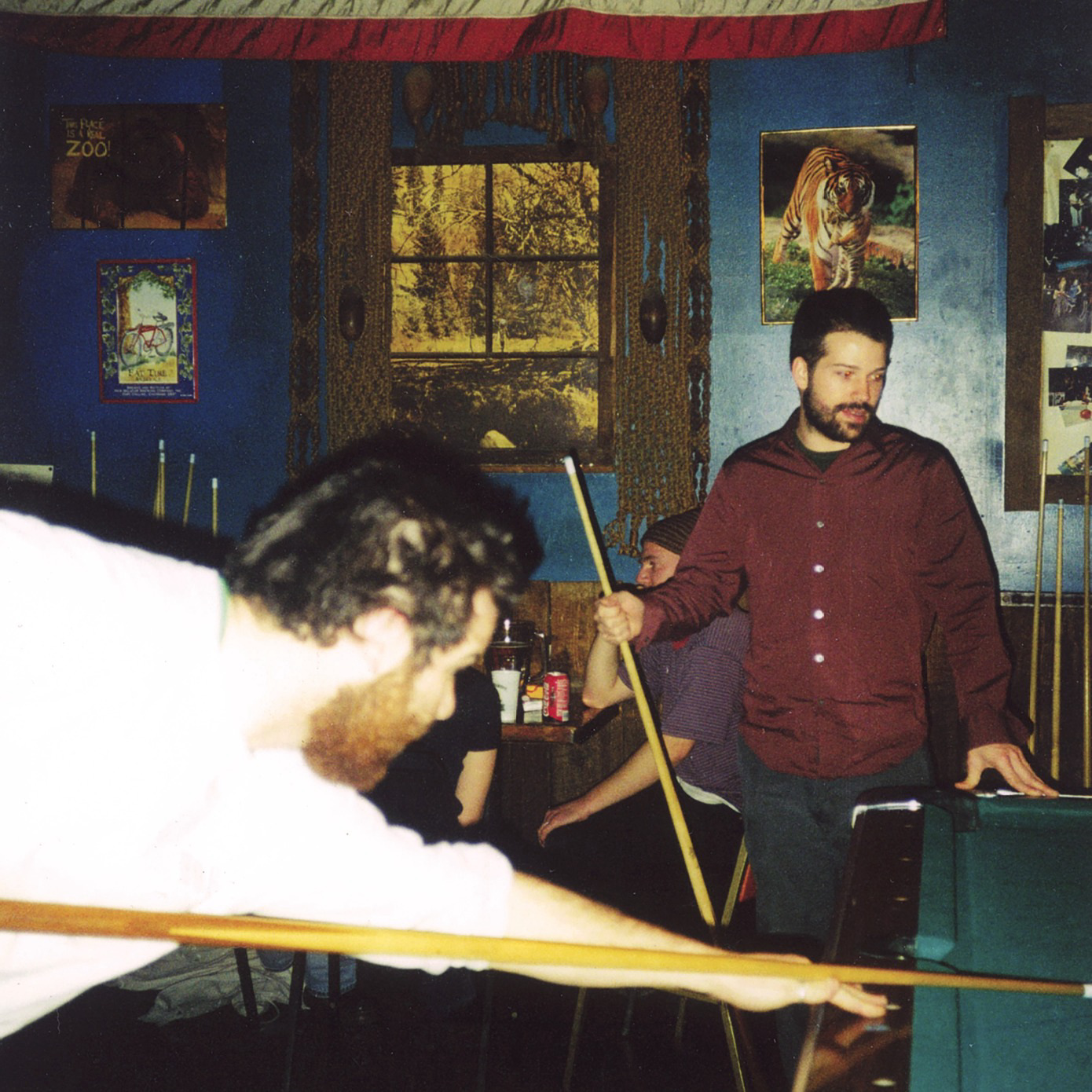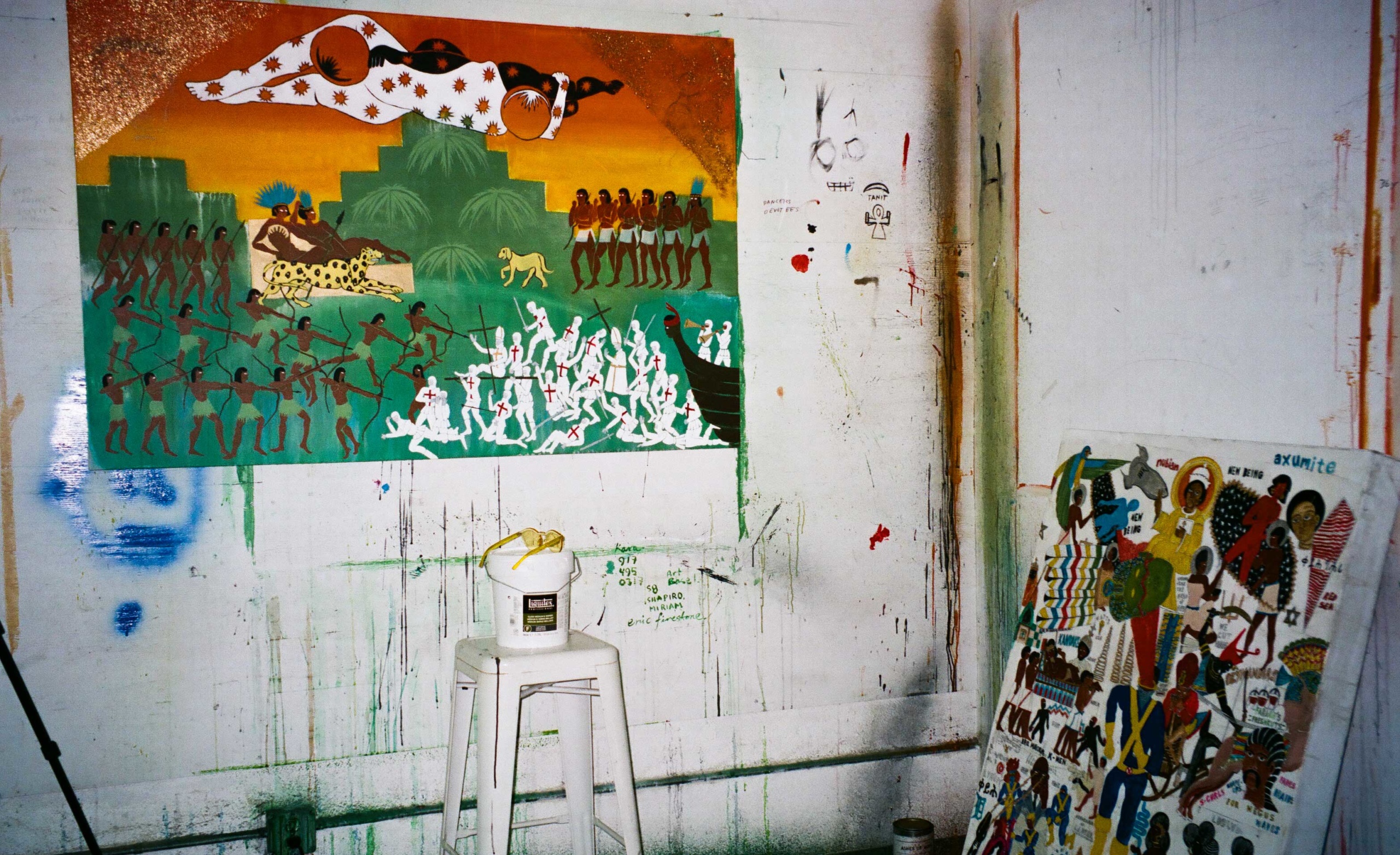
Nevena Dzamonja spoke with Umar Rashid at his studio earlier this year, during LA Frieze Week, and before his shows at Spring Break and the Armory in New York. As his work deals with the mechanisms through which empire spreads, death as narrative and the eventuality of history, she caught back up with the artist to consider what forces alter the body politic in times of pandemic.
What were you doing in the Netherlands?
UR: I had a show in Rotterdam at Cokkie Snoei and then I was in a big show, with Kehinde Wiley and a bunch of other people, in Amersfoort.
Do the Dutch have a colonial fetishization thing where they love your work?
UR: They love it, but it’s actually that they’re just happy they get mentioned [laughs]. This one woman was like, “We’re so sorry for what we did…” I’m like, “Look, I don’t do the whole white guilt thing. I don’t need it; I don’t want it. What happened happened—let’s move forward.” I’m just here to let the rest of the world know—and people who don’t know what happened—that it happened. I’m not trying to shame anybody. I’m not cancelling people. This is just some shit that I’ve always been interested in and I figured out a way to monetize it [laughs]. And if I have to sell it to you, I have to sell it to you, and if I have to sell it to someone else, I’ll sell it to someone else, because this is something I feel deeply about. But I don’t need your motherfuckin’ tears ‘cause shit is already done. I just need you to be a better human being.
Let’s talk about your work: the “Frenglish,” your antagonists, are the combined power of French, English and Spanish colonialism into one character? What purpose does it serve to consolidate colonialism into one singular power? What does that convey?
Actually, Frengland is the combination of France and England during the reign of James II—King of England, Scotland and Ireland. The Spanish empire has been remodeled as has the Portuguese Empire. The Dutch Empire has split into two factions; a monarchy under the name of the Kingdom of Holland and Zeeland and a republican government under the name of the Batavian Empire. The Turkish Empire survives as Ottoma, while, conversely, the Austro-Hungarian Empire goes by the name of Vatica (as it is merged with the traditional holdings of the Austro-Hungarian Empire along with the Papal States and a few city states in Italy). The Scandinavian countries have merged to form the Fennoscandian League, but this is short-lived as the Frenglish Imperial Army invades early on and divides the land. The Russian Empire remains the same while Germany is broken into various city states, with Prussia as the strongest.
So, the short answer is, I didn't consolidate colonialism into one single power, but I did combine the two largest colonial powers into one and made that my focus. And, I'm only listing the European colonial powers, who historically have done most of the damage. The malleability of the world during this period influenced my decision to make Frengland my narrative focus. Colonialism was made possible by political and religious stability, science, greater knowledge of seamanship and the construction of ocean-worthy vessels, a standing army equipped with the most powerful weapons, revolutionary tactics, medicines and a capitalist-infused wanderlust. Europe just happened to be the place where all of this culminated. A perfect storm, if you will. Not much different than the ascent of the Roman Empire 2000 years earlier.
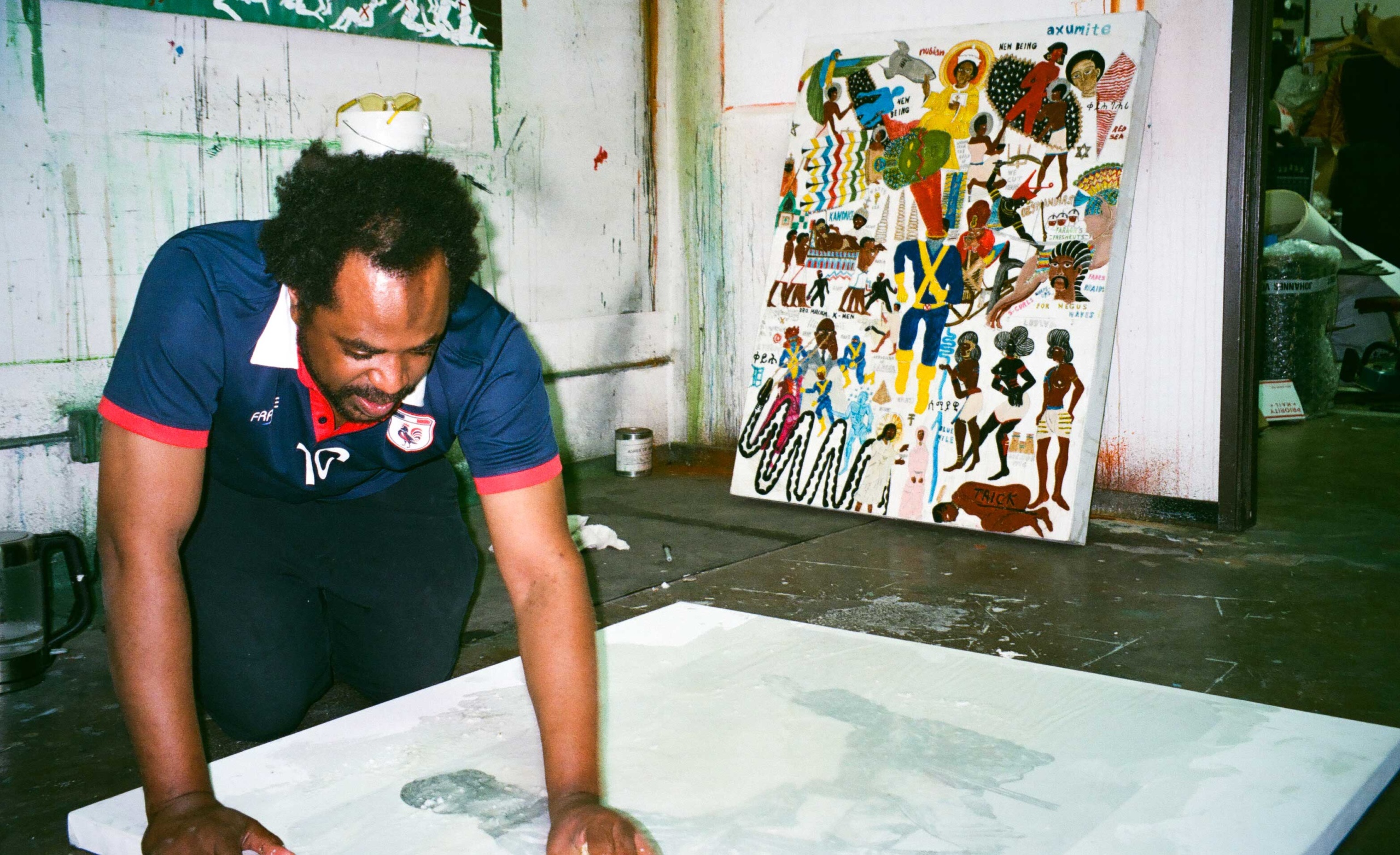
Is the mash-up theme of the Frenglish a permanent fixture of your work?
UR: Yeah, that will never change, but what I’m trying to do now is get more into the cosmology, because I’m realizing how religion influences culture, and culture influences religion. Seeing what’s happening right now in the United States—how theocratic it’s becoming—I’m actually going back to look at primordial religions from all faiths, from all different places around the world. I’m still doing my colonial stuff but it’s mixed with this cosmological stuff and it’s pretty interesting. It comes in waves. It’s not that I’m on some bullshit transcendence but, in ways, I guess I also am, because right now what I see with the Black art world is, “If it’s Black it’s great,” and people are painting mammies and shit, and the audience just eats that shit up….I can’t do that.
Did you study painting?
UR: No, I studied film. I went from film to photography, and then moved to LA and couldn’t get a job because everything went digital. I graduated in ’99 and moved here in 2000. I couldn’t get a photo job because I didn’t know how to do digital shit. I only knew how to use a dark room. I ended up selling hookahs over the phone for this Bosnian dude to head shops all over the country.
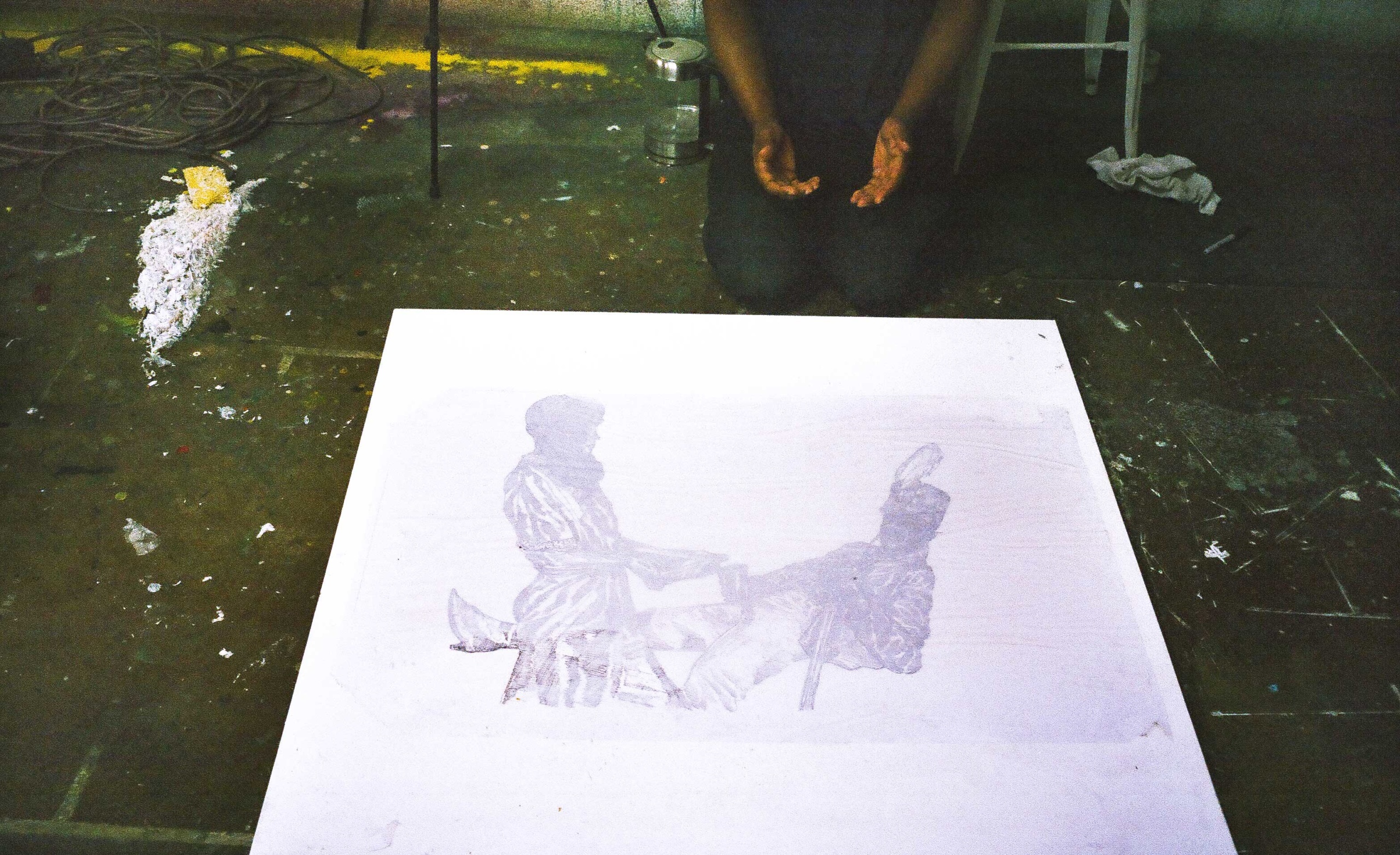
Was your family political?
UR: My family was heavily political. They were on the forefront of the Black Power movement in ’60s, ’70s and ’80s, but then it just kind of tapered off. In the ’60s and ’70s you were trying to get out of this Ozzie and Harriet kind of living, and then ended up in this Cosby living.
My main motivation was the fact that when learning in a Eurocentric curriculum, none of the history you hear is about you. Especially in this country, with the United States based on slavery, you don’t learn your roots. The only roots you really know are of your oppressor. The colonial period, for me, represented the time when that all began. I started with Haiti and the slave rebellion at the end of the 18th century, and all these other rebellions that people never talk about. There was a massive resistance. There is still slavery in my narrative, but that’s not my main focus. I want to talk about that, but I also want to talk about other things we don’t talk about, like the triumphs. The triumphs and the tragedies—it’s a grand narrative in scope—and right now I’m breaking everything down to make a book.
What’s that writing process like?
UR: For each show that I do, I write 5-12 pages, depending on the scope. Right now I have maybe 150 pages of prose I’ve written about these various shows. I wrote an opening treatise about the rise and fall of the Frenglish Empire that gives a general overview. The writings inform the paintings in ways that don’t truly factor in for the viewer at first. I have only released a few of these writings to the public. When the work is in a museum, or an elaborate gallery show, I will have a written narrative on hand for perusal. Most people don't want to read, but every now and again I receive a request. I guess the writing serves me best. It keeps the narrative somewhat linear and I can easily reference past characters and their motivations, battles and outcomes.
A lot of people think that what I do is modify or revise history like, “He’s changing history to show the superiority of the Black man.” But I’m just remixing history. That’s the hard part; there’s this confluence where Black artists are making things to sell to white people. I was always glad I started off with these narratives, because when it was time for Black art to get put on, I never felt I was pandering. I’d been doing this since I started. I’ve always been making fun. I use a lot of humor; it’s very farcical to show a bunch of people getting off a ship with a priest and getting shot up.
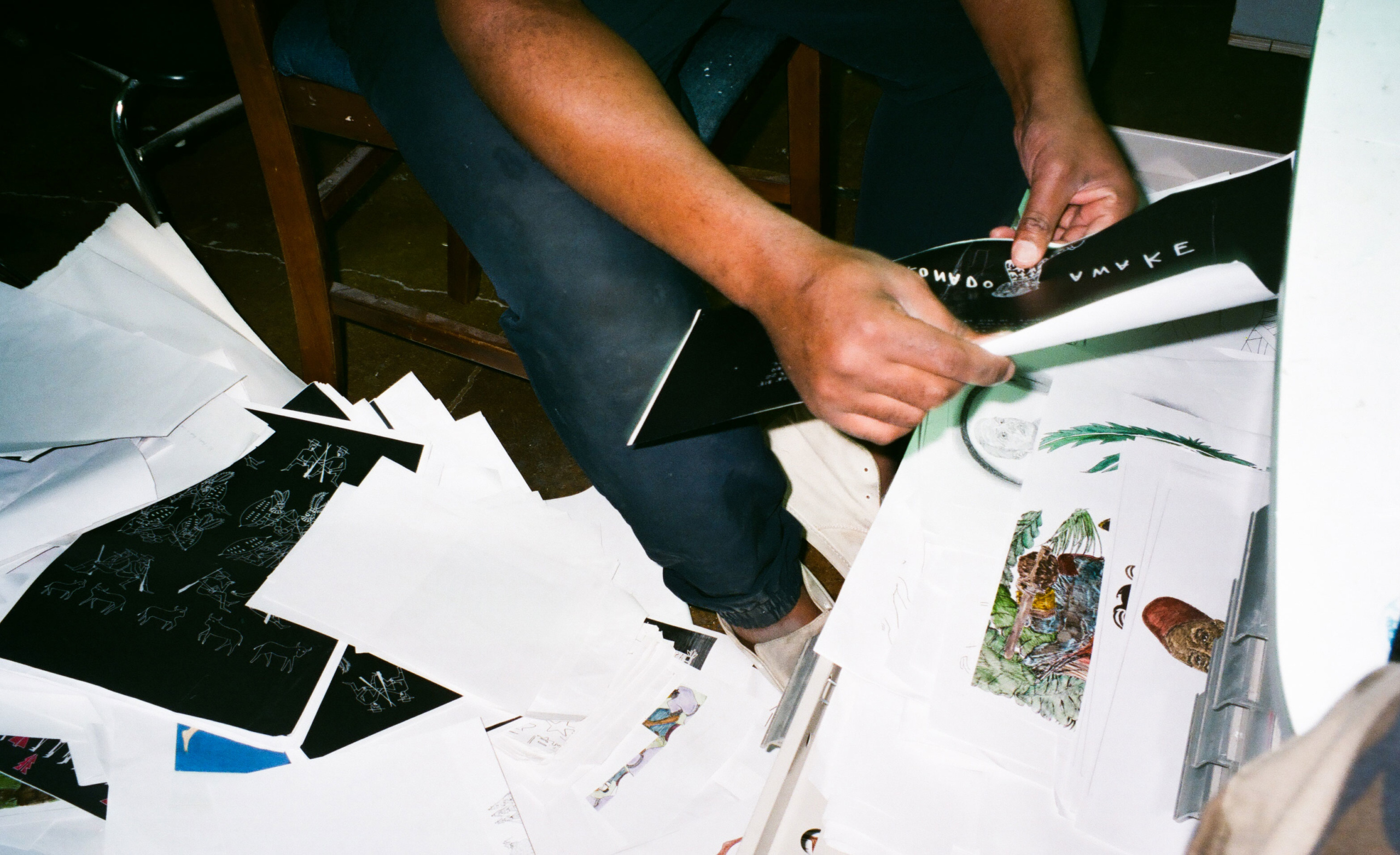
What about critiques that say your work is about Black superiority?
UR: I saw that somewhere on Instagram. I read it in the comments. I didn’t even get into it and I don’t argue online. Everybody who I paint dies within the narrative of the work. The white people who sit for portraits, who are my friends, are always like, “So how am I going to die?” I’m like, “Actually, you’re not going to die…not right away. And when you do, you’re not going to die because you’re white. You’re going to die because you caught a stray bullet, or you ate some bad fish.” There’s a lot of different ways to die! Dealing with it is illuminating because I get to see how people might see the work.
But that reading takes away—it diminishes. I always tell people, “I’m not making Django.” I’m not out for some revenge fantasy against white folks. This is how the shit went down; it happened. I’m just choosing not to show people shackled up all the time. I guess that’s how a lot of white Americans see the work—as a kind of revenge fantasy, but it’s not a fucking revenge fantasy!
Was colonialism, then, a force that shaped our mindset into thinking about everything in terms of domination? For example, your work is viewed through the lens of Black revenge fantasy, but really it’s just narrative fact; why do people always feel the need to create a dichotomy of domination and suppression?
UR: I think that some people see my work as “Black revenge fantasy” because they have not had access to multiple views of our common historical narrative. Black people, other people of color and disenfranchised whites have always rallied against the colonial model, even while some members of these groups have supported it directly or by proxy. I'm sharing a history where I, as a Black man, and people who look like me, are included in this narrative as equals, and not just as the subservient mass that many historical publications describe. History’s tendency to create a dichotomy of domination stems from the desire of the elite to facilitate their means of power, which usually manifests itself as divide and rule. A top-down power structure is harder to enforce when one realizes that the monarch is no different than the pauper. The rejection of these simple notions has created a new thinking class. However, not everyone wants to rule the world.
What do you think about the covert mechanics of empire and domination in our day and age?
UR: A virus that is disproportionately ravaging communities of color makes me think of how infection and the destruction of indigenous people on a mass scale in the Americas directly led to the development of the transatlantic slave trade, as the Spanish and Portuguese sought to replace the human labor that they had wiped out; or, how during the Black Death, Jews in Western Europe were blamed for the epidemic, burned alive and wiped out, resulting in a massive migration to Eastern Europe.
In both of these instances there is a racist and prejudiced motivation, yet the mechanism of action is an unrelated microbe. Do you believe that there are unintended collateral consequences to imperial forms of control? Do we have autonomy over how we control and how we are controlled, or are even the imperial powers still winging it?
UR: Colonialism is merely an evolution of an idea about wealth and power that, within the heart of such flawed creatures as humans, has morphed into a terrible monster. Many unique conditions must be met in order to sustain global colonialism and we, having gotten a taste of the wealth and power from such an enterprise, have continued building on this model since its inception. This viral mechanism of the colonial mind to influence the actions of the very people it was meant to coopt and/or destroy has mutated among us in such a way that even formerly colonized peoples have adopted this relatively new and horrendously unsustainable model as du jour. It has only begun to see some signs of slowing in deference to climate worries, due to various forms of pollution. In particular, take note of the autocratic actions of former colonies, post-independence from the European powers they once served and continue to serve in some capacity. So, yes, colonialism is a mutating and replicating force.
Unfortunately, the familiar pattern of blame and recrimination is already beginning to play out. I don’t think that our salvation will come from the hands of governments, all of a sudden wishing to embark on a paradigm shift of unheard proportion. The most radical change always begins in the individual and radiates outward. A comingling of like-minded individuals will form like-minded communities which can, with fortitude and nurture, form new polities. This process is long and difficult, and multigenerational. Barring cooption from the most predatory of the ancient systems, and a constant evolution of the nascent change, will eventually bear fruit. We in the present, however, must have faith, quell the desire to “see that change with our own eyes” and be happy in knowing that it is a possibility.



